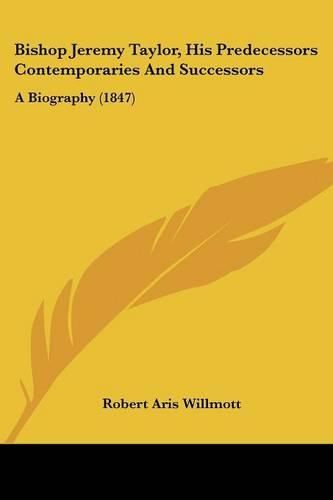Readings Newsletter
Become a Readings Member to make your shopping experience even easier.
Sign in or sign up for free!
You’re not far away from qualifying for FREE standard shipping within Australia
You’ve qualified for FREE standard shipping within Australia
The cart is loading…






Purchase of this book includes free trial access to www.million-books.com where you can read more than a million books for free. This is an OCR edition with typos. Excerpt from book: CHAPTER HI. I. The Reformation; its difficulties, oppressions, and blessings. ? II. Latimer’s personal illustration of the low state of religious feeling. ? III. Imperfect pastoral visitation; Bernard Gilpin. ? IV. The Elizabethan Age; Parker and Whitgift. ? V. The effect of the Queen’s theatrical taste upon the Pulpit, exemplified from Sermons of Andrewes and Smyth. ? VI. Hooker; his character. ? VII. Elizabethan theology vindicated from the censure of Hallam. swift transition of political or religious feeling has ever been effected without pain. The Reformation was accompanied by disorders and sufferings. We, who breathe the serener air of a settled faith, must go back to the history of those times to witness the ravages of the hurricane by which the atmosphere was cleared. Some injury is inseparable from the work of renovation. Superstition clung so closely to the fabric of truth, that it was impossible to rend it away, without sometimes defacing the architecture. Intemperate zeal frequently aggravated these unavoidable mutilations. The unqualified eulogy of Bishop Pearson1 is faintly supported bythe voice of history. The overthrow of the monastic institutions was distinguished by a reckless hostility of haste; plunder lighted avarice to the spoil. Even the intercession of the Visitors was ineffectual to protect the educational nunnery of Godstow, and Latimer pleaded in vain for the priory of Malvern,1 We have a forcible Illustration of this desecrating enthusiasm, in the proposal of the Duke of Somerset to demolish Westminster Abbey; as if the erection of his palace in the Strand, out of the ruins of churches, had only sharpened his appetite of sacrilege. The removal of cathedral decorations was the closing of one book of instruction before another was ready. Painted…
$9.00 standard shipping within Australia
FREE standard shipping within Australia for orders over $100.00
Express & International shipping calculated at checkout
Purchase of this book includes free trial access to www.million-books.com where you can read more than a million books for free. This is an OCR edition with typos. Excerpt from book: CHAPTER HI. I. The Reformation; its difficulties, oppressions, and blessings. ? II. Latimer’s personal illustration of the low state of religious feeling. ? III. Imperfect pastoral visitation; Bernard Gilpin. ? IV. The Elizabethan Age; Parker and Whitgift. ? V. The effect of the Queen’s theatrical taste upon the Pulpit, exemplified from Sermons of Andrewes and Smyth. ? VI. Hooker; his character. ? VII. Elizabethan theology vindicated from the censure of Hallam. swift transition of political or religious feeling has ever been effected without pain. The Reformation was accompanied by disorders and sufferings. We, who breathe the serener air of a settled faith, must go back to the history of those times to witness the ravages of the hurricane by which the atmosphere was cleared. Some injury is inseparable from the work of renovation. Superstition clung so closely to the fabric of truth, that it was impossible to rend it away, without sometimes defacing the architecture. Intemperate zeal frequently aggravated these unavoidable mutilations. The unqualified eulogy of Bishop Pearson1 is faintly supported bythe voice of history. The overthrow of the monastic institutions was distinguished by a reckless hostility of haste; plunder lighted avarice to the spoil. Even the intercession of the Visitors was ineffectual to protect the educational nunnery of Godstow, and Latimer pleaded in vain for the priory of Malvern,1 We have a forcible Illustration of this desecrating enthusiasm, in the proposal of the Duke of Somerset to demolish Westminster Abbey; as if the erection of his palace in the Strand, out of the ruins of churches, had only sharpened his appetite of sacrilege. The removal of cathedral decorations was the closing of one book of instruction before another was ready. Painted…